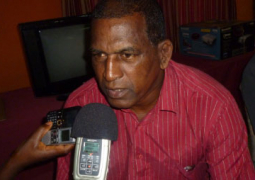Participants drawn from different institutions and groups Thursday concluded a four-day training session to brainstorm on the ‘Promoting Rights in Schools’ initiative at the GTU Secretariat along MDI road, Kanifing.
Organised by the Gambia Teachers Union and ActionAid International, the PRS is a collaborative approach between ActionAid International Education Team and the Right to Education Project aimed at actively engaging parents, children, teacher unions, communities, and local civil society organisations in collectively monitoring and improving the quality of public education by ensuring a free, compulsory, quality public education for all. The approach focuses on strengthening public education.
The training activity, which was part of the pilot process to look at 10 rights, focused on three out of the 10 rights in the PRS. They are rights 1, 4. and 9, namely the right to free and compulsory education, right to quality trained teachers, and the right to transparent and accountable schools.
The 10 rights in the PRS initiative are: Right to free and compulsory education, Right to non-discrimination, Right to adequate infrastructure, Right to quality trained teachers, Right to a safe and non-violent environment, Right to relevant education, Right to know your rights, Right to participate, Right to transparent and accountable schools, and Right to quality learning.
These rights defined in the ‘Promoting Rights in Schools’ (PRS) initiative described what an ‘ideal’ school that offers quality education would look like.
During the training session, participants were exposed to some human rights instruments with focus on child rights, in the context of the provision of quality public education.
The approach was inspired both by education and human rights frameworks, and by initiatives such as UNICEF’s global Child-Friendly Schools and UK-focused Rights Respecting Schools Award.
The 10 rights are clearly derived from international human rights treaties or conventions, and all are stipulated within and built on the ‘4A’ framework, developed by the late Katarina Tomasevski, which state that education should be: Available, Accessible, Acceptable and Adaptable.
Visits to schools
The participants also embarked on a field visit to three schools in Region One to engage teachers, students, parents, and administrators on the state of the schools with respect to rights 1, 4, and 9 to find out whether and how these rights were being observed in the schools.
The schools visited by the participants, divided into three groups, were Bundung Lower Basic School, Serrekunda Lower Basic School, and Tallinding Upper Basic School.
The information collected will be consolidated into a local, district and national ‘citizens report’ that can be used as a basis for future action including mobilisation, advocacy and campaigning to make sure all schools respect the 10 rights.
Read Other Articles In Article (Archive)
Man in Court for Assault
Feb 9, 2009, 4:22 AM


